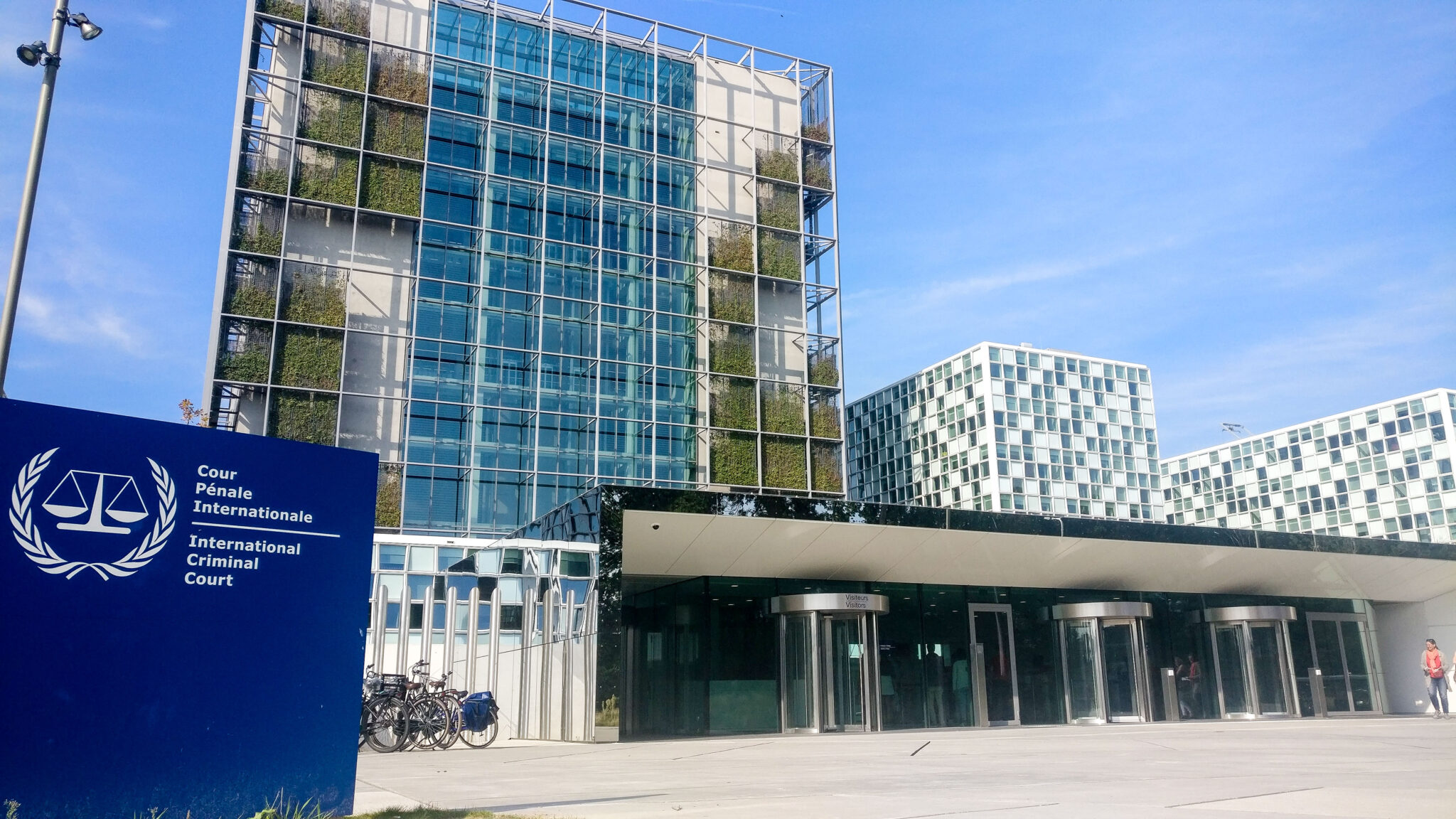A legal brief documenting the kidnapping, rape, torture and executions of Israelis who are being held hostage by Hamas terrorists in Gaza has been filed at the International Criminal Court by the Canadian-based Raoul Wallenberg Centre for Human Rights.
The 1,000-page dossier documents the brutality of the Oct. 7 Hamas attacks on Israel, which killed 1,200 people and the conditions the 240 hostages taken to Gaza have endured. The attacks triggered a war against Hamas in Gaza, which has killed about 28,000 Gazans, according to figures from the Hamas-run health ministry.
ICC Chief Prosecutor Karim Khan is investigating the events of Oct. 7 and has visited Israel to collect evidence and meet the families of the hostages and victims.
He was taken to tour destroyed kibbutzim and the site of the Nova music festival, where hundreds of people were killed, said Yuval Sasson, the lawyer representing the Hostages and Missing Families Forum in Israel, which was also involved in preparing the legal brief.
“We had the opportunity… to see the ruined places, to go into the burned kindergartens, to see the death, to feel the death, to smell it, almost two months after Oct. 7,” Sasson said at a press conference held in The Hague, the home of the ICC.
“It was apparent that he is seeking justice and that he, together with us, sees his role as bringing justice. The prosecutor’s office is an independent body and we understand that.”
The visit marked the first time an ICC prosecutor has made a “solidarity, non-investigative visit” to victims’ families as part of an investigation, Brandon Silver, the Raoul Wallenberg Centre’s director of policy noted.
“The heinous crimes that were committed on the seventh of October 2023, which are continuing even today, are crimes which shocked the conscience of humanity… They were widespread and systematic crimes directed against a civilian population,” said Michelle Butler, an international criminal law specialist. “This means that as a matter of law they amount to war crimes and crimes against humanity.”
“These crimes are ripe for prosecution before the International Criminal Court. It is the apex judicial body which was specifically conceived to hold perpetrators accountable for the most serious crimes of concern to the international community as a whole,” Butler said.
Iris Weinstein Haggai, whose parents, Judih Weinstein Haggai, who grew up in Canada, and Gadi Haggai were killed on Oct. 7, spoke on behalf of the hostages’ families.
Weinstein Haggai’s parents were shot while they were taking an early-morning walk near their home on Kibbutz Nir Oz. One-quarter of Nir Oz’s residents were murdered or taken hostage.
A few weeks after the attack, Iris heard a recording of a phone call her mother had made that morning for help. Gadi had been shot in the head and Judih had been shot in the face and arm, but the kibbutz was overrun and the ambulance on site had been set on fire by the terrorists.
The family only learned of Gadi’s death 79 days after the attack, and about Judih’s fate a few days later. Their bodies still remain in Gaza.
“This submission helps to start to bring justice and arrests (of) the Hamas terrorists who captured my parents, who captured my friends, who captured all the hostages and everybody who was involved in the Oct. 7 massacre,” Iris Weinstein Haggai said.
The next step in the process would be for the prosecutor’s office to present the case to the ICC’s judges, who will determine if enough evidence exists for arrest warrants to be issued.
“In a practical way it would tell those perpetrators that the world is watching that one day, and hopefully that day will come soon, that justice will be served and that they will see the inside of a courtroom for the crimes they have committed,” Silver said.
Arrest warrants would also “severely curtail” the ability of individuals to travel, because they face arrest if they travel to a country which is a member of the ICC, Butler said.
“There is a real operational restriction on the role of Hamas and the Palestinian Islamic Jihad which would result from the issuance of arrest warrants and we think that would be important for the victims,” she said.
Even though Israel is not a member of the ICC, Khan has affirmed that he has jurisdiction to investigate the case.
Most recently, in a social media post on Feb.12, Khan noted he was “deeply concerned by the reported bombardment and potential ground incursion by Israeli forces in Rafah,” in the southern tip of Gaza.
He also called for the release of the hostages.
The ICC and the International Court of Justice, which recently heard a case accusing Israel of genocide, are two separate tribunals, both based in The Hague.
The ICJ is a body of the United Nations which deals with disputes between nations, while the ICC is concerned with individuals who are victims of crimes against humanity.
The ICC also has a more effective enforcement mechanism, since individuals who have arrest warrants issued and travel to ICC member nations can be apprehended by international agencies like Interpol.
